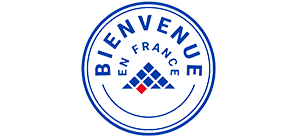Mechanics division
Mechanical and Environmental Research (MSCE) department works on materials, intelligent and robust structures and air quality
The mission of the Mechanical and Environmental Research division is to integrate the environmental factor in vehicle design. It conducts research into functional composite structures and reducing pollutant emissions.
It operates its expertise in a context of changing transport that must meet major environmental challenges and produce new technologies for sustainable and cleaner transport. On the one hand, the use of composite materials is essential for reducing weight and making energy savings. It provides real added value compared to metal structures. On the other hand, as air pollution is a major issue for public health, environment and economic cost, industries in the transport sector must now operate a policy to reduce and control pollutants in the environment.
The teams in this division provide their expertise in both domains.
They have a three-fold objective:
- To accelerate the transition towards the materials of the future.
- To make structures intelligent and robust.
- To analyze and reduce pollutant emissions in transport.
The know-how of the teacher-researchers in the Mechanical and Environmental Research division covers the following fields:
- Optimal dimensioning of functional composite structures.
- Mechanical characterization: impact, post-impact, fatigue, vibro-acoustic behavior.
- Structural health checks.
- Reliability and durability of functional structures.
- Use of aeraulics to verify pollutant dynamics.
- Identification of infiltration factors for gaseous and particulate pollutants.
- Evaluation of the influence of local topology (multi-scale approach) on the accumulation and dispersion of pollutants.
- Influence of external fields (thermal, electrical) on pollutant dynamics.
Two themes at the Mechanical and Environmental Research department (MSCE): functional composite structures and air quality & pollution abatement
Functional Composite Structures Team (SCF)
It aims at better understanding the mechanical model-process-characterization relations in functional structures subject to complex dynamic forces in harsh environments to ensure structural and functional continuity throughout their life cycle.
Air Quality & Depollution Team (QUAD)
Its mission is to gain better expertise in the physics of these pollutants and in the technological solutions to improve air quality in the passanger compartments of various means of transport.















